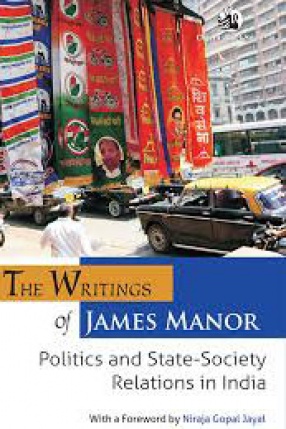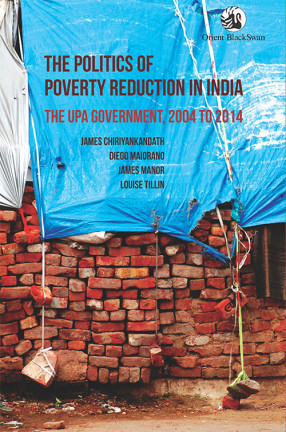The Writings of James Manor: Politics and State-Society Relations in India
The Writings of James Manor: Politics and State-Society Relations in India is a definitive collection of essays which depicts Manor’s range of interests. They are divided into five sections. The first is a commentary on the emergence of a consolidated democracy in India, and discusses two major themes—political awakening and political decay—which, together with political regeneration, forms the three key processes at work in Indian politics over the past forty years.
If one aspect of the management of democratic affairs is linked to the Indian voters and their shifting political choices, the other is where political leaders step in; and Manor is equally interested in both. He devotes three sections to the nature of political parties, the trends of regional politics, and how, at all these levels, political actors manage the challenges of governance. He addresses the regional dynamics of politics through the lens of political leadership in the fourth section. In the last section, he comments on the more recent phase of Indian politics.
The Foreword by Niraja Gopal Jayal is a fitting tribute from a colleague. A celebration of the singular scholarship of one of the leading chroniclers of Indian politics, this will be invaluable for students, teachers and everyone interested in the politics of India.
Contents: Foreword by Niraja Gopal Jayal. 1. Introduction. I. An Emergent Democracy : Attended by Awakening, Decay and Regeneration: 2. How Liberal, Representative Politics Emerged in India. 3. Anomie in Indian Politics: Origins and Potential Wider Impact. 4. Political Regeneration in India. II. Political Parties: 5. Where the Gandhi Writ Doesn’t Run. 6. The Congress Party since 1990. 7. In Part, a Myth: The BJP’s Organisational Strength. III. Managing Political and Social Forces: 8. ‘Ethnicity’ and Politics in India. 9. Political Bargaining and Centre-State Relations in the Federal System. 10. ‘Towel over Armpit’: Small-Time Political ‘Fixers’ in the Politics of India’s States. IV. Chief Ministers’ Struggles at the State Level: 11. Pragmatic Progressives in Regional Politics: The Case of Devaraj Urs. 12. India’s Chief Ministers and the Problem of Ungovernability. 13. Beyond Clientelism: Digvijay Singh in Madhya Pradesh. V. Politics and Society in the New Millennium: 14. India’s States: The Struggle to Govern. 15. As Caste Hierarchies Wane: Explaining Inter-Caste Accommodation in Rural India. 16. Politics and Experimentation in India – The Contrast with China. 17. What Do They Know of India Who Only India Know? The Uses of Comparative Politics.
Get it now and save 10%
BECOME A MEMBER









Bibliographic information